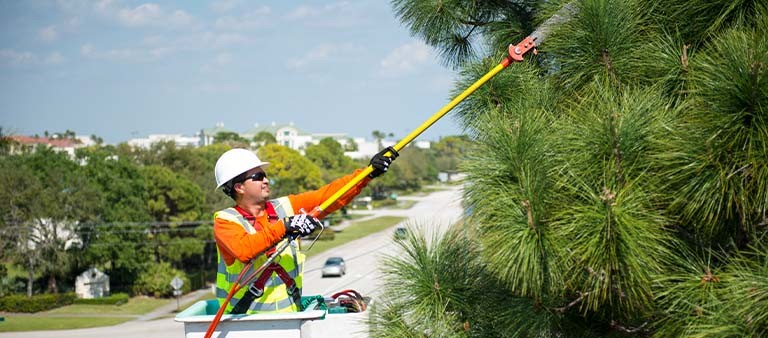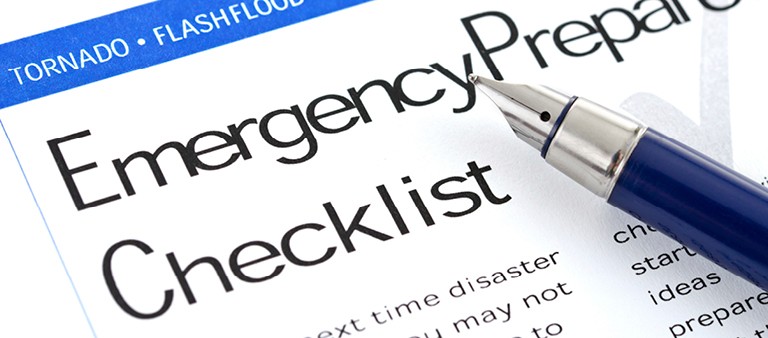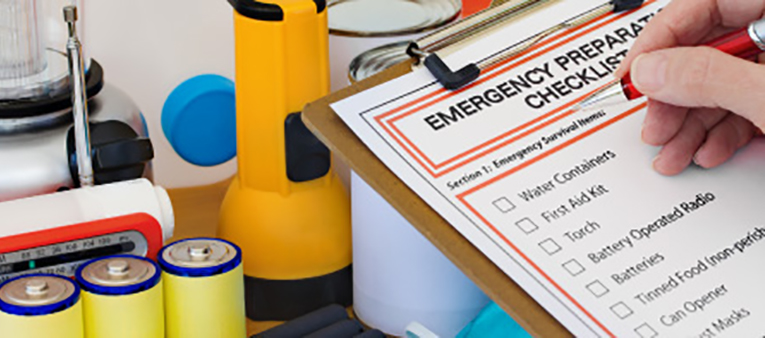Develop an Emergency Plan
Include answers to questions like:
- What do I need to do to secure my home, car and boat, and who will help me?
- Where am I going to stay during the hurricane and what are the evacuation routes?
- Where will my pets stay?
- If I plan to stay at home, what do I need to do to be prepared and where in my home will I ride out the storm? Emergency operations officials urge residents to prepare to be self-sufficient for up to 14 days – without running water or electricity.
- Review your emergency plan with your family.
- Photograph or videotape your home – inside and outside – for insurance purposes.
Address Special Needs
If you or anyone you know has special needs in case of evacuation, contact your local emergency management office. Find the phone number at FEMA.gov. If someone in your home is dependent on electric-powered, life-sustaining medical equipment, review your family emergency plan for backup power or make arrangements to relocate when a storm warning is issued.
Communication Considerations
Update the phone number and email address on your FPL account.
Consider getting a non-cordless, non-mobile telephone for your home in case the power goes out and/or mobile service is not available.
Properly Trim Trees
Before storm season begins, have your trees properly trimmed to minimize their impact on your home and neighborhood. Only specially trained line-clearing professionals can trim trees and vegetation around power lines. If you are not sure whether a tree is too close to a power line to trim it yourself, contact FPL. Make sure debris is cleared prior to a hurricane warning announcement when trash pickup is suspended.

Gather Supplies
- Purchase bottled water. The American Red Cross recommends at least one gallon of drinking water per person per day.
- Gather supplies such as: non-perishable food, non-electric can opener, disposable dinnerware and utensils, matches or lighter, medications and prescriptions, personal hygiene supplies, baby supplies, pet food, trash bags, paper towels, tissues, toilet paper, soaps and detergents, rubber gloves, sunscreen, insect repellant, tarp, clothing, blankets, pillows and items for entertainment.
- Check radio, flashlights and batteries.
- Obtain cash or travelers checks in case banks are closed and ATMs are not working.
- Fill up your car with gas.
- Fill propane tanks if you plan to use a grill for cooking.
- Charge your cell phone and obtain a car charger.
- To prepare for the loss of running water and electricity, turn refrigerators and freezers to their coldest settings to help keep your food fresh; consider making blocks of ice and storing them in coolers; sanitize bathtub and fill it with water.
Gather Documentation
Gather important documents and put them in a waterproof container.
- Insurance policies
- Health cards
- List of medications
- Birth certificates
- List of important phone numbers
- Your FPL account number
Secure Your Home
- Store objects from your yard inside.
- Fasten doors and windows.
- Cover valuables and furniture with plastic and move away from windows.
- Turn off and unplug any non-essential electrical equipment, including pool equipment.
Make Safety a Top Priority
If you use a portable generator, read and follow all the manufacturer’s instructions. Be sure to set it up outside – not in your home or garage – and connect appliances directly to it. Do not wire your generator directly to your breaker or fuse box, because the power you generate may flow back into power lines and cause injuries. Visit our generator safety page for more generator and post-storm tips.
Do not travel until it is safe to do so.
Immediately call 911 to report dangerous or hazardous conditions. To report downed power lines or damage to FPL poles, wires or transformers call FPL at 800-4-OUTAGE.
Stay far away from downed power lines, and flooded and debris-laden areas that may be hiding downed power lines. Do not touch anything that may be touching a downed power line.
If your roof or windows leak, water in your walls and ceiling may come into contact with electrical wiring. Immediately turn off your circuit breakers, disconnect all electrical appliances that are still plugged in and turn off all wall switches. Remember, never stand in water while operating switches or unplugging any electrical device.
Don’t use candles; use battery-operated flashlights and lanterns instead.
Be cautious when using a grill, portable stove or other emergency cooking devices.
Make emergency repairs only when it is safe to do so. Repairs that prevent looting or further damage should have top priority, but only if the repair can be done safely.

Should your power go out, listen to your local news on a battery-powered radio for the latest information on power restoration. You can also visit FPL.com/storm from your computer or smartphone to report and check the status of an outage.
Continue to conserve refrigeration. Check food for spoilage; if in doubt, throw it out!


